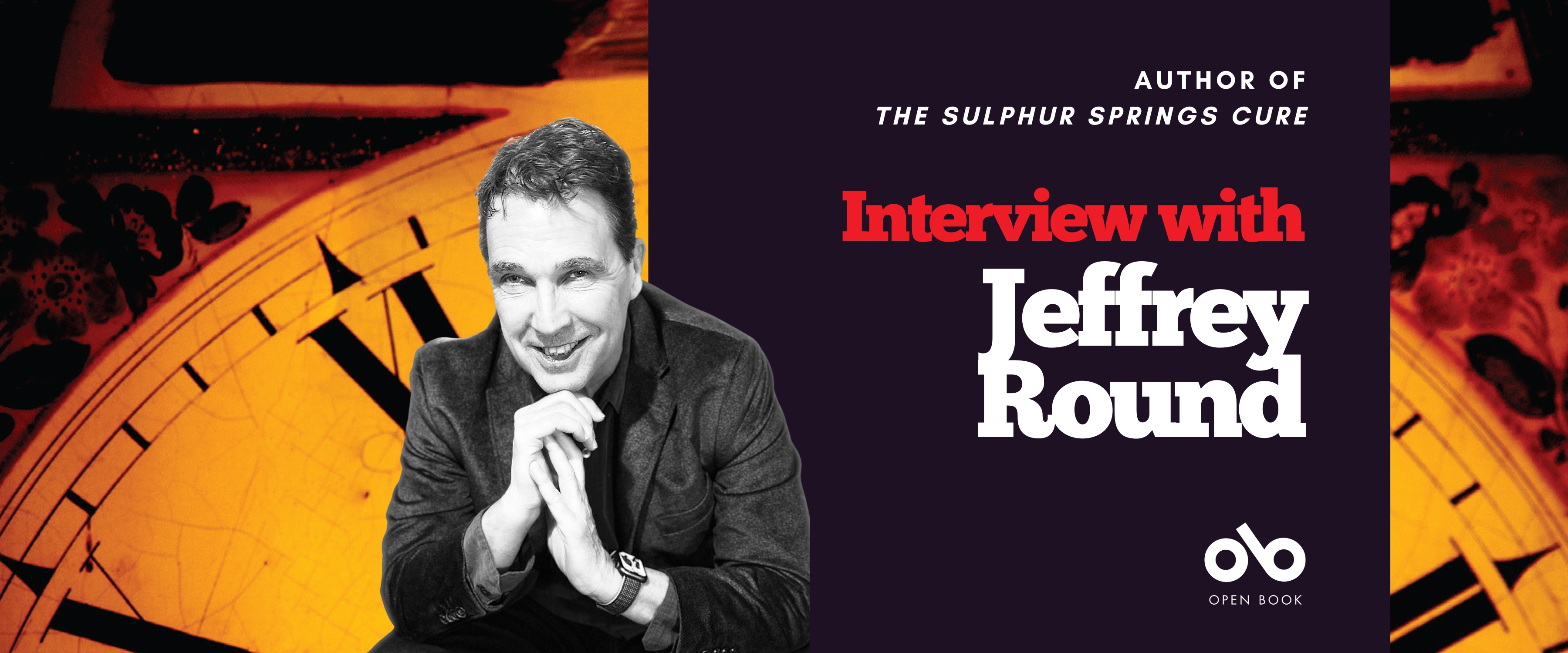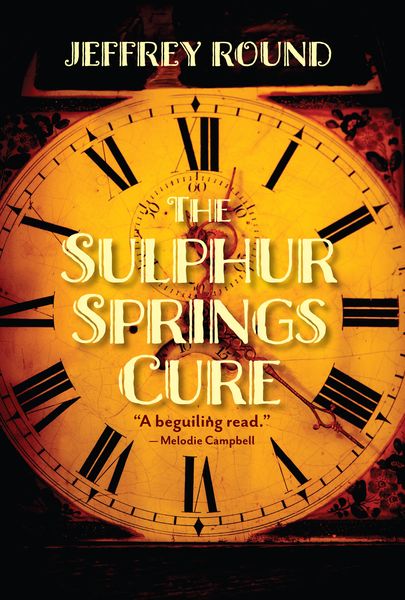An Octogenarian Sleuth Returns to Face Ghosts of the Past in Jeffrey Round's Novel, The Sulphur Springs Cure
As the prolific author of such thriller series as the Dan Sharp Mysteries and the Bradford Fairfax Murder Mysteries, Jeffrey Round is no stranger to writing page-turning, harrowing tales that follow strong protagonists.
But, it's the focus on quieter literary trappings that are at the heart of his new novel, The Sulphur Springs Cure (Cormorant Books). This time around, the author decided to eschew the expected sex and violence of a regular murder mystery and tell a grounded tale with a metaphysical twist.
Inspired by a hike along the Sulphur Spring Trail in Dundas Valley, and the namesake hotel that once stood in that area, Round centres the narrative around 84 year-old Violet, who has returned to the ruins of the hotel and its grounds to make amends for a teenage investigation gone wrong some 70 years earlier. Confronting old memories and her final years, Violet is determined to solve the cold case left behind, and to face ghosts from the past.
We're thrilled (literally), to share this Long Story interview with the author of the novel.
Open Book:
How did you choose the setting of your novel? What connection, if any, did you have to the setting when you began writing?
Jeffrey Round:
My book began with a day trip to the Sulphur Springs Trail in Dundas Valley, near the town of Ancaster, Ontario. I didn’t know anything about it before I set out. The walk itself was pleasant, but it wasn’t until I came across the ruins of an old stone building, which had obviously once been a magnificent structure, that I felt a strong connection with the place. The ruins and the estate grounds were redolent of history and vanished voices, and, as I walked and explored, the voices spoke to me. From an informative plaque, I learned that the building had been called The Hermitage. It was all that remained of the Sulphur Springs Hotel, a popular health resort dating from the late 1800s, which was destroyed by fire in the early part of the 20th century. I took my protagonist’s first name, Violet, from another plaque stating that a donation had been made for the trail’s preservation. by someone named Violet Williams. The name itself was suggestive of an earlier time period. All of this set my imagination alight.
OB:
Did the ending of your novel change at all through your drafts? If so, how?
JR:
The book began as an Agatha Christie-style mystery, which I wrote especially for my mother, who was averse to the scenes of sex and violence in my contemporary mysteries. It was a bit tame for my tastes. I was initially unable to find a publisher for it, and suspected that was largely due to the lack of sex and violence, so I set it aside. When Cormorant’s publisher, Marc Coté, asked if I had something a bit lighter than my usual fare, I jumped at the chance to show it to him. At that point, the ending was a standard mystery reveal, which, though clever, felt flat. Marc suggested I concentrate more on the book’s literary aspects. With this in mind, I turned it into what I thought a writer like William Trevor might have done with the story, giving it an almost metaphysical twist at the end, while concentrating more on character than plot, although the reveal is the same as it was in the original version.
OB:
Did you do any specific research for this novel? Tell us a bit about that process.
Your CanLit News
Subscribe to Open Book’s newsletter to get local book events, literary content, writing tips, and more in your inbox
JR:
My initial research began with the conservation area’s on-site plaques. They gave basic details about George Gordon Browne Leith, who bought the property in 1855 to serve as a family summer retreat, and how the last of his five children, Eleanor Alma, lived there until her death in 1942. The information available on-line from the Ontario Trails Council, although minimal, told about the hotel and spa, renowned for their “curative” waters in the late 1800s and early 1900s. As well, I researched the area’s geological history, which proved informative and useful when creating the story’s atmosphere in the chapters set in 1939.
OB:
What was the strangest or most memorable moment or experience during the writing process for you?
JR:
After my initial discussions with Marc, I set about doing substantial rewrites for the book during a trip to Puerta Vallarta, Mexico, in March of 2023. My work station was on a balcony overlooking a pool where, each morning, a group of chatty older women performed an aqua-fitness routine. Initially, I ignored them, but soon became curious about their activities. In my head, I nicknamed them the Silver Swans. I soon realized that my protagonist, Violet, would have ridiculed them had she been there, but would eventually have been drawn to them. By including the group as a part of her story, I was able to bring aspects of Violet’s later life into focus. It also helped me flesh out Violet’s husband, Edgar, who until then was largely a shadow figure who had died before the contemporary story began. It was one of a number of memorable discoveries writing this book.
OB:
Who did you dedicate your novel to, and why?
JR:
The book is dedicated to my mother, Loretta Round, who inspired it, although she did not live to see it published. It is also dedicated to my mother’s parents, Abbie and Henry White, whom I tried to imagine when creating Violet’s parents, although my grandmother, Abbie, died at a very young age in 1937. I have a picture of her laughing and swinging from a rope, probably taken when she was in her twenties. She looks a hoot and I wish I could have known her.
OB:
Did you include an epigraph in your book? If so, how did you choose it and how does it relate to the narrative?
JR:
Music and poetry figure largely as atmosphere in the story, as well as providing a number of chapter titles. Much of it is meant to evoke the past — sometimes from as far back as the time of Shakespeare, whose works Violet taught, and elsewhere as references to music popular around the time of the early part of the story. In the case of the epigraph, I used a verse from the 1927 hit song, Hot Springs Blues, by singer Bessie Smith, with its humorous references to curative waters.
__________________________________________________
Jeffrey Round is an author, playwright, and filmmaker from Toronto. His previous books include the Dan Sharp Mysteries, the Bradford Fairfax Murder Mysteries, and the acclaimed war novel The Honey Locust. He co-founded the Naked Heart Festival. Lake on the Mountain, the first Dan Sharp Mystery, won the Lambda Award for Best Gay Mystery and two other books in the series have been shortlisted for the prize. Jeffrey is currently at work on a feature film project.





